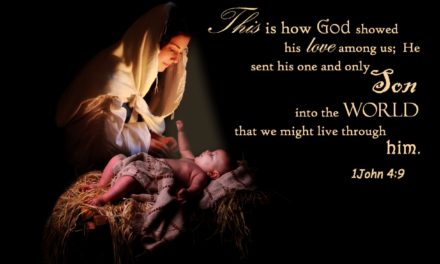Why are 1 & 2 Samuel and 1 & 2 Kings Categorized as part of the “Prophets”?
By Thomas Thorne
McDowell County
In last month’s article, we examined the categorization of the Old Testament into five sections by Christian scholars:
- The Pentateuch – Genesis, Exodus, Leviticus, Numbers, Deuteronomy
- Historical Books – Joshua through Esther
- Poetic Books – Job through the Song of Solomon
- Major Prophets – Isaiah through Daniel
- Minor Prophets – Hosea through Malachi
Plus the fact that Jewish scholars categorize the Tanakh (Hebrew Bible – the Old Testament) into three sections:
- The law – Genesis through Deuteronomy
- The Prophets – Joshua, Judges, 1 & 2 Samuel, 1 & 2 Kings, Isaiah, Jeremiah, Ezekiel, Hosea, Joel, Amos, Obadiah, Jonah, Micah, Nahum, Habakkuk, Zephaniah, Haggai, Zechariah, Malachi
- The Writings – Psalm, Provers, Job, Song of Solomon, Ruth, Lamentations, Ecclesiastes, Esther, Daniel, Ezra, Nehemiah, 1 & 2 Chronicles
And how both include all 39 books of the Old Testament.
When looking at this categorization by the Jewish sages many have wondered why the books of Joshua, Judges, 1 & 2 Samuel, and 1 & 2 Kings are not included as part of the “Writings” rather than the “Prophets” After all they are the historical stories of ancient Israel, not predictions, aren’t they? To answer this question we first need to take a look at the word “prophet.” I would say that often times the first thing a person thinks of when they hear the term “prophet” is “one who predicts the future” or “one who interprets the Bible concerning future events.” The key word is “future.” The most commonly used Hebrew word for “prophet” in the Bible is navee (pronounced nah-vee, the word “prophets” would be pronounced ne-vee-eem).
Of the most significant passages in determining its basic meaning is in the book of Exodus. The situation in Exodus 4:10-16 is where God calls Moses to return to Egypt to approach Pharaoh. Moses hesitates, reminding God of what he called inadequate speaking abilities. To this God first responded by reminding Moses that He (God) made man’s mouth and vocal cords so He can enable Moses in any fashion He wants, including his speaking. Moses still objects and God says that he will instruct Aaron, Moses’ brother, to speak for him. God emphasizes this by adding, “He (Aaron) shall speak for you to the people, and he shall be your mouth, and you shall be as God to him.” (Exod. 4:16 ESV). So there was to be a relationship between Moses and Aaron similar to that between God and a spokesman for him. And then in chapter 7:1 God speaks of Aaron, and his relationship to Moses, by saying, “and Aaron thy brother shall be your prophet (navee-spokesman)” (ESV).
Another text in this regard is Amos 7:12-16. Here Amos is at Bethel in Israel speaking against the false altar which Jeroboam, the divided nation of Israel’s first king, had erected. Amaziah, the Bethel priest, encounters the prophet and says, “Go, flee away to the land of Judah, and eat bread there, and prophesy there, 13 but never again prophesy at Bethel, for it is the king’s sanctuary, and it is a temple of the kingdom” (Amos 7:12-13 ESV).
To this, Amos replies in verses 14-15, “I was no prophet, nor a prophet’s son, but I was a herdsman and a dresser of sycamore figs. 15 But the LORD took me from following the flock, and the LORD said to me, ‘Go, prophesy to my people Israel.” The point concerns the significant usage of the word “prophesy.” Amaziah urges Amos “not to prophesy” anymore at Bethel, and Amos in response says that God had sent him to Israel to prophesy. Thus what he had been doing at Bethel, and motivated Amaziah’s rebuke, was prophesying, or speaking God’s message. These two passages provide a good indication of the meaning of the term “prophet” as being “a spokesman.” Therefore, a prophet of God is a “spokesman for God.” Further study indicates that a true prophet of God will not only “speak” for God but will “speak fervently” for God.
So a prophet can be much more than just one who foretells future events. A prophet acts as a “spokesman” for someone else. A prophet of God is one who acts as a spokesman for God, providing God’s word accurately to others. This could involve God’s word about the distant future, the near future, warning people of their need for change, or even commending people for doing right.
With this background, next month I will explain why the Jewish people categorize the books of Joshua, Judges, 1 & 2 Samuel, and 1 & 2 Kings into the “Prophets” grouping.
Shalom,
Tom Thorne
____________________________________________
Tom Thorne and his wife (Amy) moved to Marion from Denver, NC almost a year and a half ago. Thomas and Amy are fellowship leaders of a small congregation of Believers called “Servants of the Most High God.” Tom can be reached at servantsotmhg@gmail.com
____________________________________________
Read more Christian news here.







